Throughout human history, mythological narratives have served as powerful tools for understanding and conceptualizing abstract ideas such as authority, strength, and endurance. In ancient cultures, stories of gods and heroes encapsulated ideals of sovereignty and resilience, shaping societal values and leadership models. Today, these mythic themes continue to influence modern perceptions of power and resilience, often embedded subtly within cultural symbols, entertainment, and even technological innovations.
This article explores how mythological archetypes and stories serve as a bridge between ancient wisdom and contemporary ideas of empowerment, resilience, and societal cohesion. By examining examples from history, art, and modern media—including the engaging realm of gaming like pragmatic’s latest olympus—we can see how these timeless themes are repurposed to inspire and reinforce modern notions of strength.
Table of Contents
- Historical Foundations of Power and Resilience in Mythology
- Mythology as a Framework for Understanding Modern Concepts of Power
- Rituals and Symbols as Embodiments of Power and Resilience
- Case Study: Modern Mythological Inspiration in Gaming
- Mythology’s Influence on Modern Visual and Cultural Representations of Power
- Non-Obvious Dimensions: Myth, Power, Resilience, and Society
- Critical Perspectives: Limitations and Risks of Mythological Inspiration
- Conclusion: Bridging Ancient Wisdom and Modern Concepts
Historical Foundations of Power and Resilience in Mythology
Mythological representations of divine authority and sovereignty
Ancient mythologies vividly depict gods as embodiments of ultimate authority. For instance, in Greek mythology, Zeus is portrayed seated on his throne, wielding lightning, symbolizing divine sovereignty and control over natural and human worlds. Such imagery reinforced societal hierarchies, suggesting that legitimate power derived from divine endorsement. The authority of gods was often reinforced through stories that emphasized their control, justice, and moral order, providing a divine blueprint for rulership that persisted into political and cultural institutions.
Rituals and sacrifices as expressions of devotion and strength
Ritualistic practices, such as offerings and sacrifices, served as tangible expressions of devotion to gods, reinforcing social cohesion and demonstrating strength. Archaeological evidence from ancient Greece, Rome, and other civilizations shows elaborate ceremonies meant to appease deities and secure their favor. These acts symbolized collective resilience, where communities demonstrated resilience in the face of natural disasters or crises through ritual acts rooted in mythic tradition.
Artistic depictions of gods as symbols of ultimate power (e.g., Zeus on his throne)
Art has historically played a crucial role in conveying mythic concepts of power. Statues, frescoes, and reliefs depict gods like Zeus, Odin, or Ra as commanding figures seated on thrones or wielding symbolic weapons. These artistic representations serve as visual metaphors for authority and resilience, emphasizing the divine’s strength and stability. Such images continue to influence contemporary interpretations of leadership and power, often inspiring modern iconography and branding.
Mythology as a Framework for Understanding Modern Concepts of Power
Transition from divine to human-centered power narratives
While ancient myths centered on gods, modern narratives shift focus toward human agency and leadership. However, the archetypal themes persist—heroes overcoming adversity, leaders embodying divine-like qualities, and resilience being celebrated as a core attribute of strength. For example, contemporary political leaders and entrepreneurs often draw on mythic imagery—such as the hero’s journey—to inspire confidence and authority.
Mythological archetypes influencing leadership and authority models
Patterns like the hero, the ruler, or the creator have permeated modern leadership models. The archetype of the hero—facing trials and emerging victorious—informs contemporary stories of resilience in business, politics, and social movements. These archetypes provide a universal language that resonates across cultures, shaping perceptions of what it means to lead with strength and integrity.
The role of resilience in myth: overcoming adversity and divine trials
Mythological stories often depict divine or heroic figures enduring trials that test their resilience. For instance, Hercules’ twelve labors symbolize perseverance and strength in the face of insurmountable challenges. Such narratives highlight the importance of resilience—not just as survival, but as a virtue that defines true power.
Rituals and Symbols as Embodiments of Power and Resilience
The significance of chalices and sacrifices in reinforcing authority
Ancient rituals often involved sacred chalices or vessels used in offerings, symbolizing the union between divine and mortal realms. Sacrifices, whether of animals or symbolic objects, represented devotion and strength, reinforcing social hierarchies. These symbols continue to inspire modern branding—such as logos featuring cups or crowns—that evoke authority and resilience.
Ritualistic practices as metaphors for resilience and dedication
Contemporary practices, from military ceremonies to corporate rituals, mirror ancient rites, emphasizing discipline, dedication, and collective strength. These rituals serve as metaphors for resilience, fostering a shared identity rooted in perseverance. In branding, symbols like shields or torches are employed to evoke resilience and enduring power.
Modern reinterpretations of ancient symbols in branding and cultural identity
Modern companies and movements often draw inspiration from mythological symbols. For example, the use of the eagle signifies strength and freedom, while the throne symbolizes authority. Such reinterpretations serve to communicate resilience and power visually, fostering cultural identity and consumer trust.
Case Study: Modern Mythological Inspiration in Gaming
Overview of the product and its thematic connection to mythic power
Modern gaming often leverages mythological themes to create immersive narratives of power and resilience. An example is pragmatic’s latest olympus, which draws inspiration from Greek mythology, particularly the gods’ dominion over the heavens and their resilience in divine conflicts. These themes resonate with players seeking stories of strength and perseverance.
How game design evokes divine rule and resilience through visuals and gameplay
The design employs visual elements such as grand thrones, divine symbols, and powerful gods to evoke authority. Gameplay mechanics emphasize overcoming divine trials, mirroring mythic resilience. These elements craft a narrative that reinforces the timeless allure of divine power and the resilience required to attain it, echoing mythological stories that have inspired humanity for millennia.
The use of mythological symbols (e.g., throne, gods) to create immersive power narratives
Symbols such as thrones, lightning bolts, and divine figures serve as visual anchors that communicate authority and resilience. They tap into deep-seated archetypes, making the gaming experience not only entertaining but also psychologically resonant with the ancient themes of divine rule and perseverance.
Mythology’s Influence on Modern Visual and Cultural Representations of Power
Artistic and media portrayals of mythic figures embodying resilience
Films, literature, and art frequently depict mythic figures such as Hercules or Odin as embodiments of resilience. For example, Marvel’s portrayal of Thor combines Norse myth with modern heroism, emphasizing strength and endurance. These representations reinforce the idea that resilience is a core component of true power.
The adaptation of mythological motifs in modern entertainment and branding
Brands often incorporate mythic symbols—like lions, eagles, or crowns—to evoke authority and resilience. For instance, sports teams and luxury brands adopt such motifs to project strength, stability, and excellence, demonstrating how mythic themes are woven into contemporary cultural identity.
The psychological impact of myth-inspired symbols on perception of authority
Research indicates that myth-inspired symbols activate deep psychological associations of power and resilience. When consumers see these symbols, they often subconsciously associate the brand or figure with strength and endurance, which influences perceptions and behaviors favorably.
Non-Obvious Dimensions: Mythology, Power, Resilience, and Society
Myth as a tool for societal resilience during crises
During times of societal upheaval, myth serves as a collective narrative that fosters resilience. Myths about heroes overcoming adversity inspire communities to persevere through challenges, providing a shared sense of purpose and hope.
The role of sacrifice and ritual in community cohesion and collective strength
Sacrificial rituals historically reinforced group identity and resilience. Modern equivalents include national celebrations or commemorative events that serve to unify communities, drawing on mythic themes of sacrifice and perseverance to bolster collective strength.
Ethical considerations: power dynamics rooted in mythological narratives in contemporary contexts
While myths can inspire resilience, they also risk reinforcing harmful stereotypes—such as the glorification of authoritarian figures or divine right. Critical engagement is essential to ensure that mythic inspiration promotes ethical leadership and societal well-being.
Critical Perspectives: Limitations and Risks of Mythological Inspiration
Potential for myth to reinforce harmful stereotypes of power
Historically, mythic narratives have sometimes justified tyranny or exclusion, portraying certain groups as inherently inferior or subordinate. Modern interpretations must be cautious to avoid perpetuating these stereotypes under the guise of resilience or strength.
The balance between mythic inspiration and ethical responsibility
Fostering resilience through myth requires ethical awareness. Leaders and creators should critically assess which mythic elements promote inclusive, ethical strength versus those that may endorse authoritarian or exclusionary ideals.
Future directions: fostering resilience without mythic authoritarianism
The challenge moving forward is to harness mythic themes to inspire resilience and empowerment without fostering authoritarian tendencies. Promoting stories of collective effort, diversity, and ethical leadership aligns with a more inclusive vision of strength.
Conclusion: Bridging Ancient Wisdom and Modern Concepts
Summarizing the enduring relevance of mythological themes
Mythological narratives remain a vital source of insight into human concepts of power and resilience, offering archetypes and symbols that continue to inspire modern culture and societal structures.
The importance of nuanced interpretation in contemporary applications
Effective integration of myth into modern contexts requires careful and ethical interpretation. Recognizing both the empowering and potentially problematic aspects of myth is essential for fostering resilient and inclusive societies.
Encouraging thoughtful integration of mythological inspiration in shaping resilient and empowered societies
By consciously drawing






